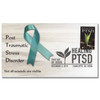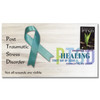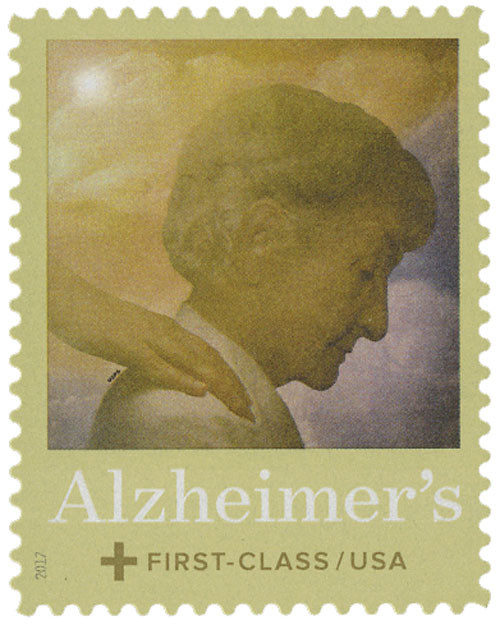
# B7 FDC - 2019 Non-Denominated, 55c & 10c Surtax, Semipostal - Healing PTSD
U.S. #B7
2019 55¢ & 10¢ Healing PTSD Semi-Postal
Post-traumatic stress disorder (PTSD) is a mental health condition that can affect people after they have experienced or witnessed a life-threatening event. Some of the most common symptoms include trouble sleeping, emotional distress, and reliving memories of the event. These feelings are normal in the first few weeks or months after a traumatic event, but if they continue after a few months, it may be a sign of PTSD.
Recognition of post-traumatic stress disorder as an official medical diagnosis did not occur until 1980, but the symptoms have been reported throughout history. It has previously been called "soldier's heart," "combat fatigue," and "shell shock," among other names. These terms were used mostly during World War I and II when it was thought the disorder was limited to soldiers. Today, we know anyone who experiences trauma can develop PTSD, and our understanding of the disorder continues to improve.
One of the most difficult parts of the disorder – especially for veterans – is seeking help. In 2019, the US Department of Veterans Affairs' National Center for PTSD was the world's leading research and educational center on PTSD. This organization is erasing stigma and proving to the world that true strength is asking for help when you need it.
U.S. #B7
2019 55¢ & 10¢ Healing PTSD Semi-Postal
Post-traumatic stress disorder (PTSD) is a mental health condition that can affect people after they have experienced or witnessed a life-threatening event. Some of the most common symptoms include trouble sleeping, emotional distress, and reliving memories of the event. These feelings are normal in the first few weeks or months after a traumatic event, but if they continue after a few months, it may be a sign of PTSD.
Recognition of post-traumatic stress disorder as an official medical diagnosis did not occur until 1980, but the symptoms have been reported throughout history. It has previously been called "soldier's heart," "combat fatigue," and "shell shock," among other names. These terms were used mostly during World War I and II when it was thought the disorder was limited to soldiers. Today, we know anyone who experiences trauma can develop PTSD, and our understanding of the disorder continues to improve.
One of the most difficult parts of the disorder – especially for veterans – is seeking help. In 2019, the US Department of Veterans Affairs' National Center for PTSD was the world's leading research and educational center on PTSD. This organization is erasing stigma and proving to the world that true strength is asking for help when you need it.












